In the world of hip-hop, beefs are as common as beats, but not all of them shake the foundations of the genre. Enter the storied rivalry between Kendrick Lamar, the lyricist from Compton known for his piercing introspection and complex rhyme schemes, and Drake, the Toronto-born rapper whose melodic hooks and commercial success have crowned him a pop-rap phenomenon. This clash of titans culminated in a seismic event with Kendrick Lamar’s track “Not Like Us,” a masterstroke that would decisively tilt the scales in his favor.
For years, the tension simmered beneath their successful exteriors, each artist taking veiled jabs within tracks that fans and critics would zealously decode. It was a cold war of words until “Not Like Us” dropped—a lyrical atom bomb that exposed the fault lines in Drake’s armor with surgical precision.
Kendrick’s approach was never about direct confrontation; it was about showcasing the gulf in skill, depth, and authenticity between him and Drake. “Not Like Us” was a brutal exposition of these themes. Kendrick’s verses were a relentless barrage, contrasting his substantive, socially aware lyrics against Drake’s often surface-level explorations of fame and personal relationships. Where Kendrick painted pictures of societal struggles and personal demons, he portrayed Drake as little more than a purveyor of catchy hooks and radio-friendly beats, more concerned with chart positions than artistic integrity.
The track opened with a haunting sample, setting a somber tone before Kendrick’s voice cut through the silence like a knife. His words were sharp, each line delivered with a precision that felt both effortless and intensely calculated. “I pen realities, you curate fantasies,” he rapped, a clear swipe at Drake’s penchant for crafting a kind of pop-rap that often skirted the edges of emotional depth and realism.
In one of the most talked-about verses, Kendrick didn’t just question Drake’s authenticity; he challenged the very foundation of his persona, suggesting that Drake’s identity was a carefully constructed facade tailored for mass appeal. “How many faces you got? You switch ’em out like fits,” Kendrick accused, alluding to Drake’s frequent shifts in musical and cultural allegiances.
As “Not Like Us” reverberated through the industry, the response was immediate and unanimous. Critics lauded Kendrick for his fearless honesty and lyrical prowess, while fans took to social media to declare the track a knockout blow. Memes depicting Kendrick as the victor in this lyrical bout flooded the internet, and even some of Drake’s most ardent supporters found themselves nodding along to the brutal honesty of Kendrick’s rhymes.
Drake’s response was tepid—a few subliminal lines scattered across tracks that did little to address the allegations laid out in “Not Like Us.” It seemed the more Drake avoided a direct response, the more palpable his defeat became. The silence was out of character for the usually loquacious rapper, and it spoke volumes. In the court of public opinion and critical acclaim, Kendrick had not just won; he had transcended the beef, redefining what it meant to be a victorious rapper in a modern feud.
As the dust settled, the impact of “Not Like Us” lingered in the air like smoke after a fire. Kendrick Lamar had not only delivered a decisive blow but had done so on his own terms—remaining true to his artistry and his message. In this high-stakes battle of words, Kendrick had emerged not just as a winner, but as a champion of a genre that prides itself on the power of the truth. Drake, with all his commercial might, could not compete with the raw force of genuine artistry.
About the author: Jacky Jasper is the Hollywood gossip columnist renowned for fearlessly uncovering the scandals and secrets of the entertainment industry.




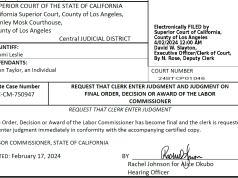




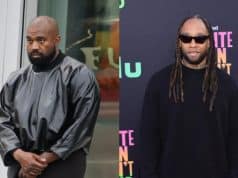
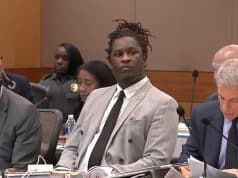
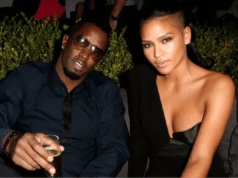
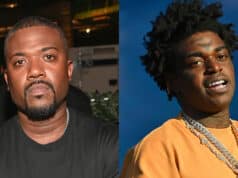











![Kris Jenner Stalker & Subject Of FBI Raid Christina Bankston [EXCLUSIVE AUDIO]](https://hollywoodstreetking.com/wordpress/wp-content/uploads/2014/09/kris-jenner-pr-conspiracy-100x75.jpg)
